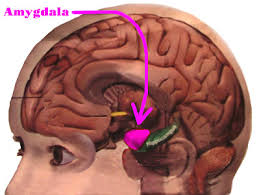 Researchers from Charles Sturt University (CSU) and the University of New South Wales (UNSW) have received a grant from the National Health and Medical Research Council (NHMRC) that may help people who suffer from post-traumatic stress disorder.
Researchers from Charles Sturt University (CSU) and the University of New South Wales (UNSW) have received a grant from the National Health and Medical Research Council (NHMRC) that may help people who suffer from post-traumatic stress disorder.
Dr James Crane and Dr Andrew Delaney, lecturers in anatomy and physiology in the CSU School of Biomedical Sciences, are part of a team led by Professor Fred Westbrook, with Dr Nathan Holmes, from the UNSW School of Psychology.
Dr Crane said the team will use the $378 532 grant to explore the amygdala region of the brain which is known to change during the development of post-traumatic stress disorder (PTSD).
"PTSD can occur after exposure to a traumatic event such as wars, sexual assault, and domestic violence," Dr Crane said. "In Australia, it is estimated that PTSD affects over 800 000 people, making it the second most diagnosed mental health disorder in the country, after depression. PTSD sufferers experience 'reliving' the traumatic event and anxiety, and that has a negative impact on almost every aspect of their lives.
"The amygdala is responsible for learning when certain things in our environment predict stressful or frightening events.
"For example, many of us have learned that the 'da-dum' music from the 1975 blockbuster movie Jaws means that a very large, violent shark is going to appear on screen and scare the living daylight out of us. The amygdala is responsible for forming that memory and triggering the fear response that we have to that music. There is now a lot of evidence that in PTSD the fear-memory formed by the amygdala is very strong and recalled very easily."
Recent work by Professor Fred Westbrook's research group at UNSW suggests that the hormone oxytocin may help to suppress fear-memories, making it harder for them to be recalled.
"Dr Delaney and I are working with Professor Westbrook and Dr Holmes to understand more about this action of oxytocins," Dr Crane said.
"The team at UNSW will be working to try and understand more about how it suppresses memory formation and recall, while Dr Delaney and I will be working to try and understand how oxytocin changes the way neurons in the amygdala work.
"Ultimately, we want to know if oxytocin could be used to treat PTSD. Intra-nasal delivery of oxytocin is already being trialled for the treatment of social anxiety disorder, so the results of this research could lead relatively quickly to clinical trials of oxytocin to help people with PTSD."
The NHMRC grant for the project application 'Oxytocin impairs fear acquisition and enhances fear inhibition: mechanisms of action in the basolateral complex of the amygdale' will fund the team's research activities for the next three years.





Social
Explore the world of social